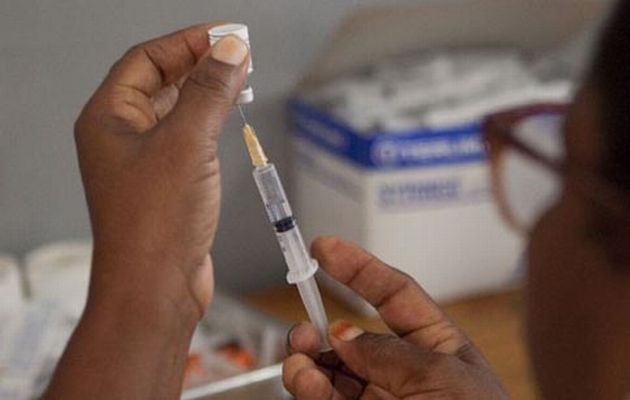Monkeys infected with Ebola survived after being treated with an experimental drug from Mapp Biopharmaceutical Inc., in a study that suggests the drug may be effective even after severe symptoms are present.
Monkeys were given three doses of the antibody-based treatment ZMapp starting three to five days after being infected with a lethal dose of Ebola. All 18 monkeys treated with ZMapp survived, while three that weren’t given the medicine died, according to the results published in the journal Nature.
Monkeys infected with Ebola survived after being treated with an experimental drug from Mapp Biopharmaceutical Inc., in a study that suggests the drug may be effective even after severe symptoms are present.
Monkeys were given three doses of the antibody-based treatment ZMapp starting three to five days after being infected with a lethal dose of Ebola. All 18 monkeys treated with ZMapp survived, while three that weren’t given the medicine died, according to the results published in the journal Nature.
“It is a really, really important study” as it is the longest researchers have waited after infecting monkeys with Ebola to protect all of them with a drug, said Thomas Geisbert, a virologist at the University of Texas Medical Branch at Galveston, who wasn’t involved in the research. “This has real-world utility.”
Some Ebola patients, including the American health workers Kent Brantly and Nancy Writebol, have been treated with ZMapp, though the closely held San Diego-based company has said its supply is exhausted. Three health-care workers in Liberia have also been treated with the drug. Liberian officials have confirmed that one of them, Abraham Borbor, the deputy chief medical officer of Liberia’s John F. Kennedy Medical Center, died.
The current outbreak has sickened more than 3,000 people and killed 1,552 as of Aug. 26 in Liberia, Sierra Leone, Guinea and Nigeria, putting it on a pace to cause more deaths than all previous Ebola outbreaks combined, and prompting the World Health Organization to declare it a global health emergency. More than 20,000 people may be infected with Ebola before the outbreak in West Africa is controlled, the WHO said.
The Mapp drug is one of several vaccines and drugs being developed. GlaxoSmithKline Plc and the U.S. National Institutes of Health are planning to start human trials of an Ebola vaccine as soon as next week. Inserm, the French national health institute, is talking with Guinea health authorities about human trials of drugs from Fujifilm Holdings Corp. and Tekmira Pharmaceuticals Corp.
While previous research has shown various treatments can protect monkeys against Ebola, in most of the studies the animals were treated with the drugs shortly after exposure to the virus, before bad symptoms were present, Geisbert said. In the study released yesterday, most of the animals had fevers, abnormal blood cell counts, or other signs of disease by the time they were given ZMapp.
Developing a drug that can treat animals at such an advanced stage of disease “is a monumental achievement,” Geisbert wrote in a commentary accompanying the study in Nature. The next step would be to perform a safety trial of the medicine in humans, he said in an interview.
“These are promising results,” said Daniel Bausch, a virologist and tropical medicine specialist from Tulane University. “If I was sick with Ebola, I would want to have ZMapp.” Older studies “set the bar much lower” by giving the drugs sooner after infection, he said.
Whether the drug is used on a significant scale for the current outbreak may depend on how fast the company can make more. Mapp said Aug. 11 that it has exhausted the supply of the drug and it’s unclear how quickly it can ramp up production.
“We can say ZMapp looks great, and I would take ZMapp,” Bausch said. “But if there is no ZMapp for the next five months that is not really an option.”
Continue reading @Bloomberg

